
itching and writing for a publication when you are among their target audience makes a writer’s job easier. We can mine our own personal and professional experiences, even when we are penning a reported piece, ideas ranging from where we worked, our relationships with family members and friends, our hobbies, romantic lives...
Everything is fair game as long as it is relevant to the content, tone, and style of the piece. The more in common we have with the demographic of the readers, the easier it can be to sell the piece. That’s why I love writing for writing-related publications, for instance. And that is also why I’ve pitched to Marie Claire, Glamour, and Cosmopolitan—and not Esquire or Men’s Health.
Unfortunately, we can’t just rely on our age, gender, occupation, or interests to pay the bills. Since it can take a long time to get a response from an editor and see the article published, we need to pitch more often to make a decent living, even if it means leaving our beloved comfort zones far behind.
And this is where writing for publications that we are not necessarily in the target audience comes in. I’ve talked to writers who broke into widely different markets: 20-year-olds writing for AARP, women writing for Esquire, the queen of frugality writing for an upscale wedding rental company, and more.
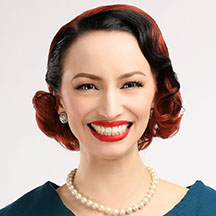
“I’d say that you don’t need to be the target market, but you need to understand them.”
(Photo: Bree Brouwer)
Bree Brouwer is an experienced B2B copywriter and content marketer. Coming from a Dutch background, she was raised as a frugal person. Yet, she has written for an upscale wedding magazine. Bree believes that you might not necessarily be the expert or the target demographic. But you can still position yourself as someone who knows what they are talking about.
“I’d say that you don’t need to be the target market, but you need to understand them. This can be done in a variety of ways; what worked for me when I was writing for a luxury travel, vacation, and wedding venue company was calling on my past experiences with rich people and celebrities, even though I’d grown up in a lower middle-class, single parent family. For example, I grew up in the world of media before my parents’ divorce with an anchorman dad who took us to lots of celebrity-filled events (i.e., I met Alice Cooper once!). I also met a lot of my husband’s friends, who came from a very wealthy community in California. Talking to such people and understanding the way they view life as separate from my view immensely helped me understand what it’s like to have enough money to afford such trips and weddings.”
When Bree applied for this role of writing about luxury weddings, she took a DIY approach. “I’d been in one wedding each year (including my own) for the five years previous to applying for this writing role. This perspective helped me convince the management firm that I knew exactly what different kinds of brides wanted and that some placed heavy financial priority on a luxurious, awe-inspiring ceremony and reception location. The firm liked this, apparently, and I ended up writing a blog for them each week for a full year!”
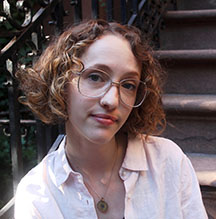
“I had an opportunity to explain feminist politics to an audience that might not be exposed to them otherwise.”
(Photo: Lilly Dancyger)
Lilly Dancyger is a successful writer, essayist, writing instructor, and editor. She has written for Narratively, The Writer, The Rumpus, The Guardian, Glamour, and The Washington Post, among others. Moreover, she worked as a regular contributor to Playboy. The first piece she did was about school dress codes and toxic masculinity.
“I wrote mostly commentary about news and politics, so I found my stories the same way I do for other outlets: reading the news and looking for things that I feel passionate about. The great thing about writing for a men’s magazine for me was that I had an opportunity to explain feminist politics to an audience that might not be exposed to them otherwise—rather than preaching to the choir in a publication geared toward people like myself. In this political climate, it feels more important to write things that have a chance of changing someone’s mind, or even exposing them to an idea or perspective they’re not familiar with yet, than it does to reiterate the beliefs your readers already hold.”
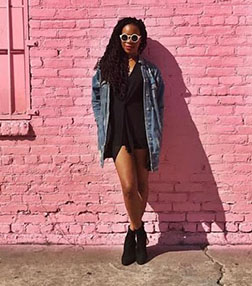
“My essay was so well-received that I began writing for them in print and online.”
(Photo: Britt Julious)
Britt Julious is a columnist for Chicago Tribune. She’s penned articles for Broadly, Vice, and Elle Magazine. She also writes regularly for Esquire. The magazine originally reached out to her in 2015.
“I’ve written on and off for them since then. Usually about two to three stories per year. My most recent piece was last year. My first article for them was a reported essay on the Chicago fallout of the release of the Laquan McDonald video shooting. I’m a lifelong Chicagoan, originally from the hood, black. I think that helped in solidifying my reputation for this specific segment. My essay was so well-received that I began writing for them in print and online.”
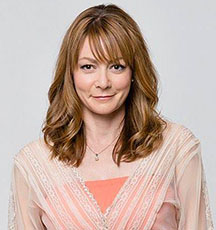
“I think if I pitched a story that a male author could write, I wouldn’t have landed the story.”
(Photo: Amanda Janae McCracken)
Experienced writer Amanda Janae McCracken’s bylines include AARP, Men’s Journal, New York Times, The Washington Post, Glamour, Elle, ESPN, Huffington Post, Outside, Runner’s World, and Triathlete, among others.
She approached AARP with a story about an amazing runner over age 50 and the oldest woman to run in the Olympic trials.
“It seemed like a good fit for AARP since the subject was focused on an older woman still chasing her dreams and on an Olympic level. She’d already competed in the Olympics several times, but was still eager to run her full potential.”
McCracken has also written for Men’s Journal.
“The stories were about men doing adventures. I was their point of contact for the stories. I had the connection that the Men’s Journal editors didn’t have; I was able to land the stories. I think if I pitched a story that a male author could write, I wouldn’t have landed the story.”
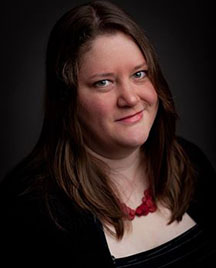
“I confessed that I don’t ride a bike, and she said that’s fine—you just need to be a good writer.”
(Photo: Chloe Nadine Walker)
Australian writer Chloe Nadine Walker has written for the Aussie bike magazine Treadlie since their inception, and she doesn’t ride a bike.
“Well, the editor has always assigned things to me. I haven’t had to pitch a thing. Someone I knew on Twitter, who I hadn’t met in person, but who lived in my suburb and was friends with one of my neighbors, reached out to ask if I’d be interested in writing for a new publication. (This was back in 2010 when Twitter was full of nice people having pleasant conversations.) She’d just been hired to edit a bike magazine, Treadlie, having never edited a magazine before. She knew of my work through another magazine I wrote for that had a similar market and style to what she was going for with Treadlie—she wanted to get away from the whole lycra brigade thing and focus more on everyday, European-style cycling. We met for lunch, and I confessed that I don’t ride a bike, and she said that’s fine—you just need to be a good writer. After writing a few articles for her, I did end up getting excited about the subject matter and buying a bike later on, but I still haven’t learned how to ride it.”
*
At the end of the day, writing for a different kind of publication—one that doesn’t typically cater to your demographics or interests—is not that different from getting other types of writing assignments. Your network, previous careers, personal experiences, opinions, writing skills, and professionalism will help you pitch, land, and deliver a successful article. And who knows? It might even be more fun for your career, as you add variety to your portfolio and leave that pesky little thing called your comfort zone way, way behind.
That said, even though I’ll be applying all the marvelous advice I received as I worked on this piece, I still get the most kick out of writing about writing. It’s my first passion after all.
*
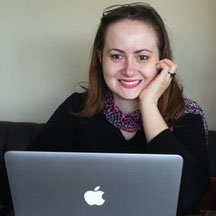
Pinar Tarhan is a freelance writer, screenwriter, novelist and blogger. Her bylines include The Washington Post, Popsugar, The Billfold, Horkey Handbook, and WOW! Women on Writing among others. She’s recently released Making a Difference (M.A.D.), her first novel—a fun, contemporary romantic comedy set in New York.
-----
Enjoyed this article? Check out some of Pinar’s articles on WOW!:
How to Find the Right Markets for Your Ideas (and 2 Things You Need to Know)
How to Be a Successful International Freelance Writer & How 5 International Writers Got Their First Break
How to Manage the Evil Three: Rejection, Depression, and Procrastination